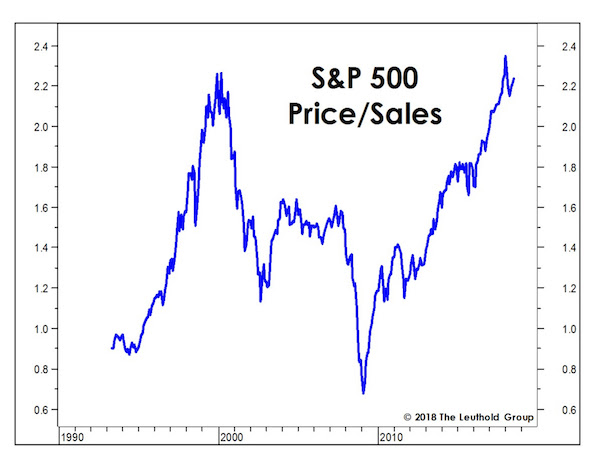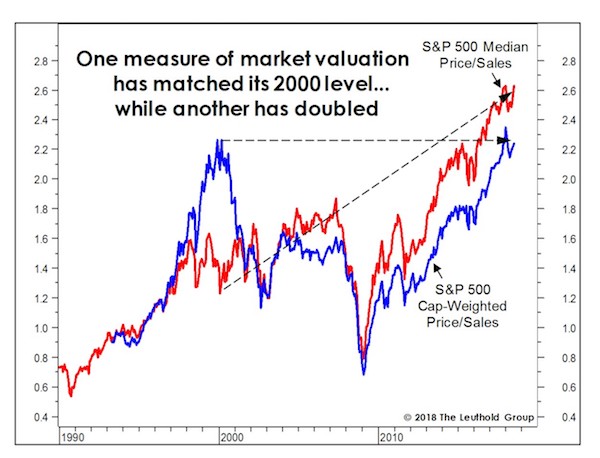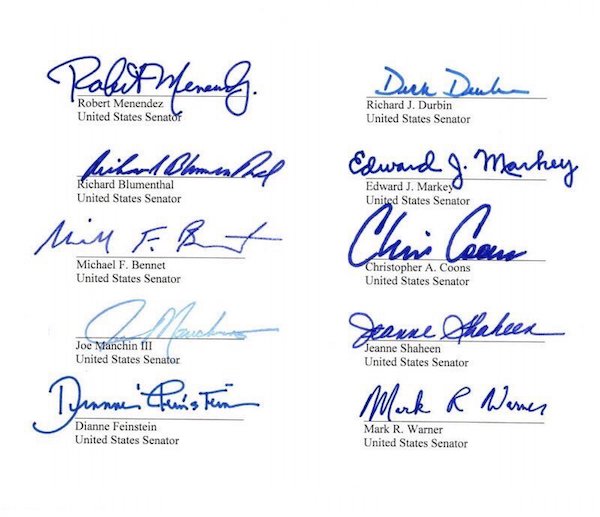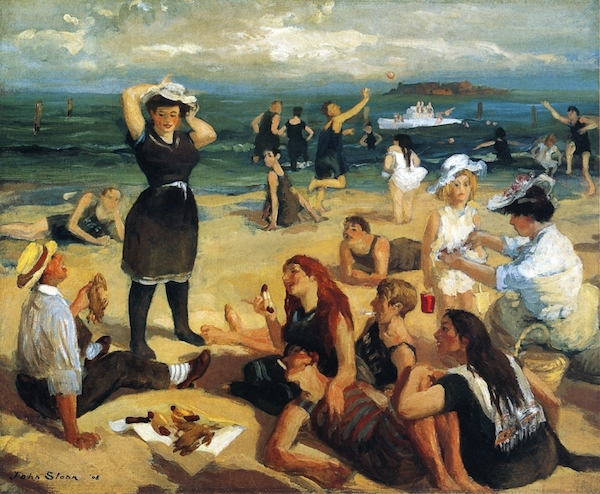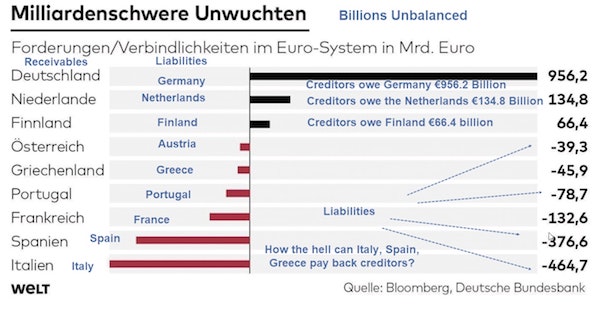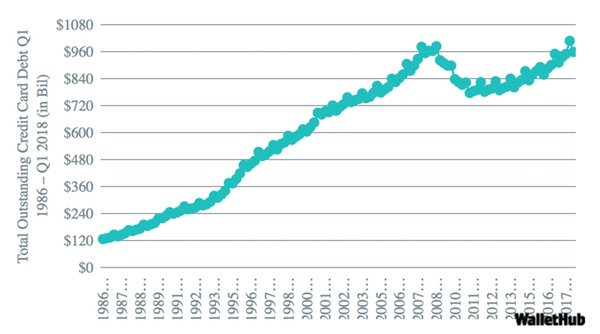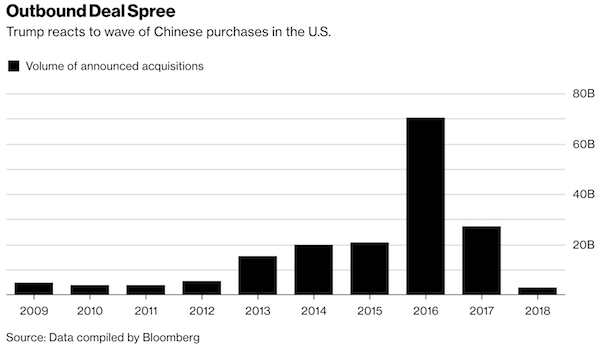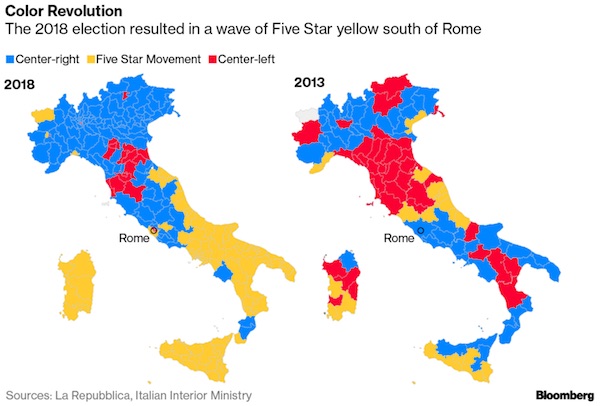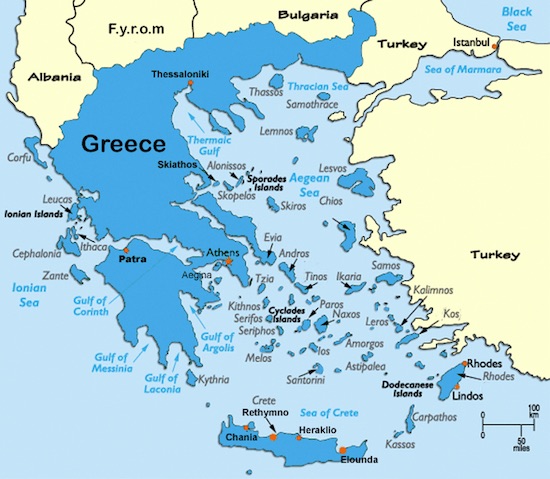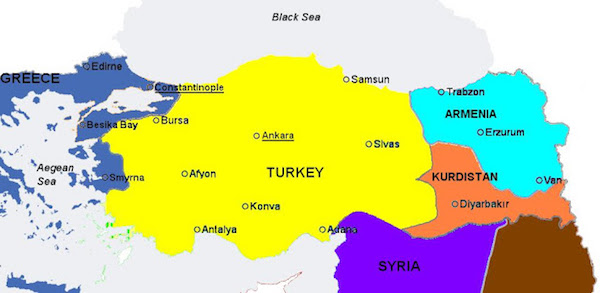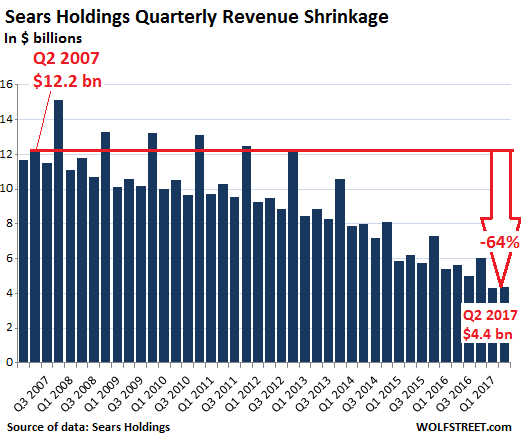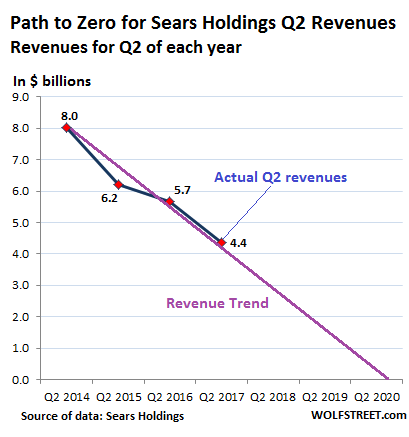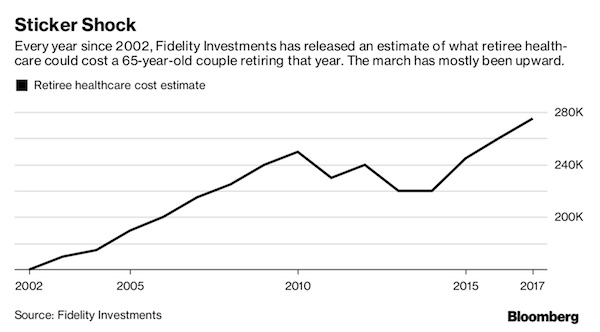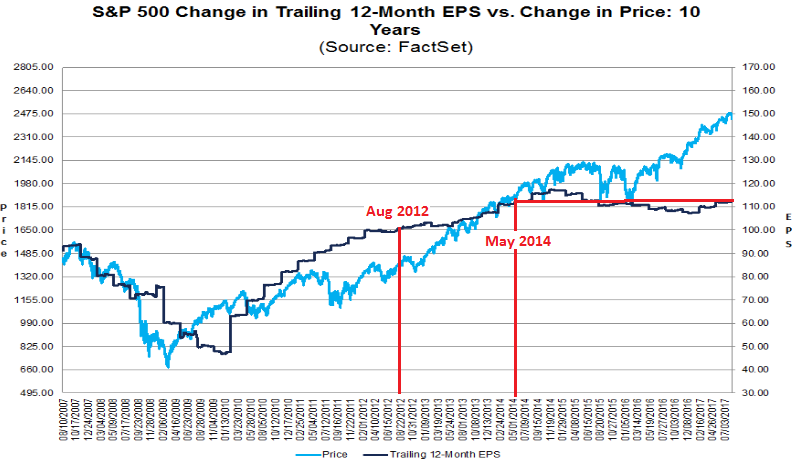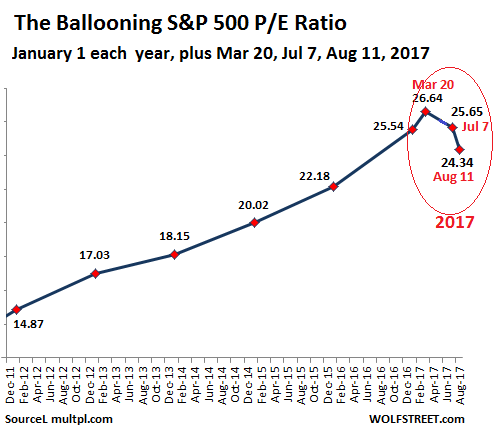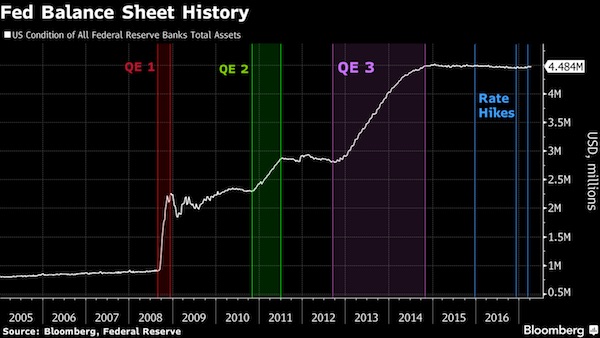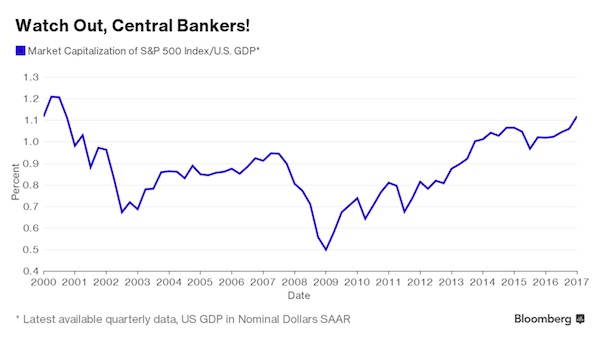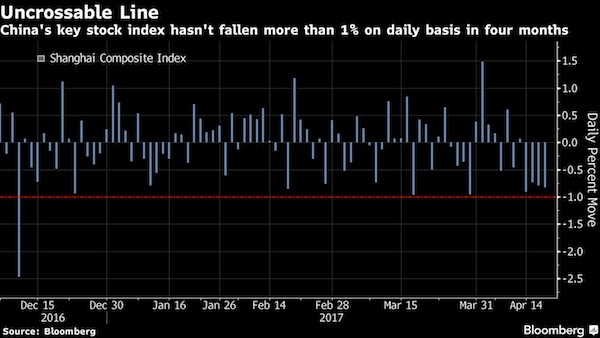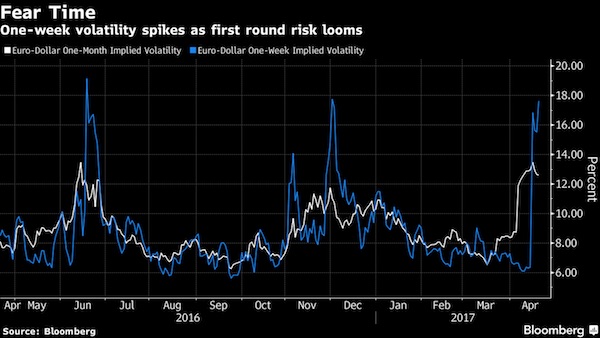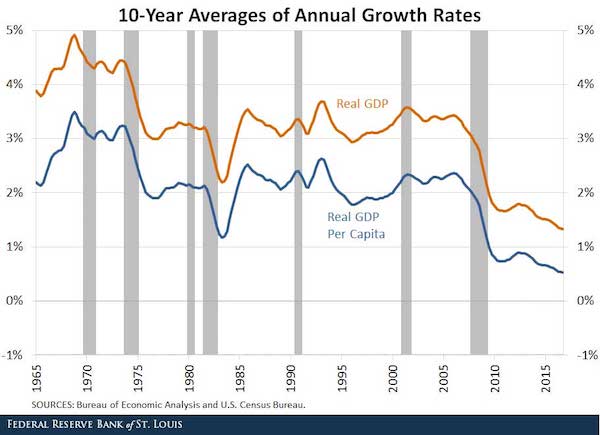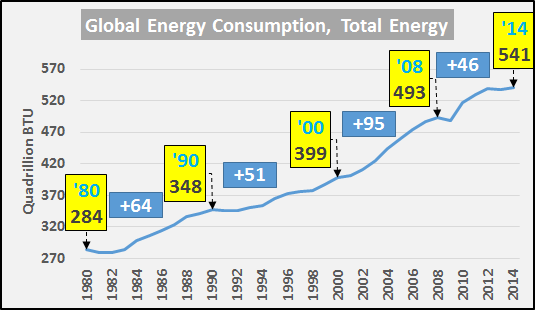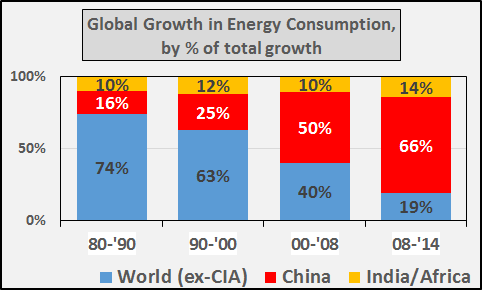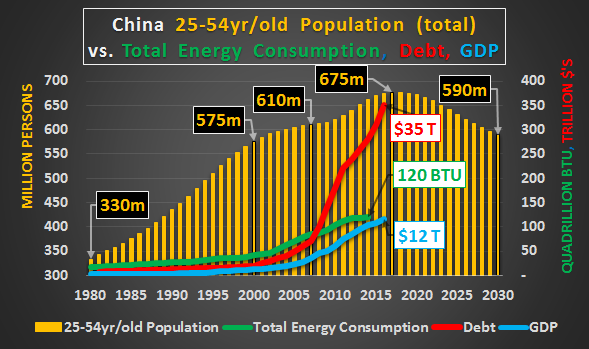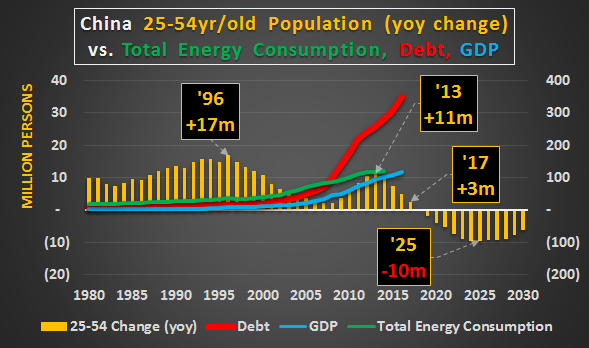
Hasui Kawase Moon at Megome (woodblock print) 1930

Carstens’ comments on letters of credit are interesting. Non-US banks will need access to dollars, or trade stops. Not sure where Tyler got that quote.
• BIS Warns Of “Perfect Storm” For Global Economy (ZH)
Carstens highlighted the potential catalysts that could unleash the “perfect storm” he highlighted as the key risk resulting from the interaction of real and financial risks, namely: the trillions in outstanding dollar-denominated debt – whereby a dollar-shortage threatening to cripple international trade – and the growing risk of currency wars:
“Consider that non-US banks provide the bulk of dollar-denominated letters of credit, which in turn account for more than 80% of this source of trade finance. The Great Financial Crisis highlighted the fragility of this setup, since non-US banks depend on wholesale markets to obtain dollars. Ten years on, we should not forget how the dramatic fall in trade finance in late 2008 played a key part in globalising the crisis. Any dollar shortage among non-US banks could cripple international trade. On top of that, trade skirmishes can easily escalate into currency wars, although I hope that they will not.
As we saw earlier with Mexico, imposing tariffs on imports tends to weaken the target country’s currency. The depreciation could then be construed as a currency “manipulation” that seemingly justifies further protectionist measures. If currency wars break out, countries may put financial markets off-limits to foreign investors or, on the other side, deliberately cut back foreign investment, politicising capital flows. In addition, we must be mindful of long-observed knock-on effects from tighter US monetary conditions, given the large stock of dollar borrowing by non-banks outside the United States, which has now reached $11.5 trillion.”
His conclusion: “Policymakers in advanced economies should not shrug off the growing evidence that abrupt exchange rate depreciations reduce investment and economic growth in emerging market economies. This has implications for everybody, in that weaker economic activity reduces demand for exports from advanced economies.” “In the long term, protectionism will bring not gain but only pain,” Carstens said, echoing a familiar talking point of establishment economists. “Not just for the United States, but for us all.”

Yeah, well, so called free trade is their thing.
• BIS’s Carstens Warns Of Economic Risks Of Protectionism (R.)
Agustin Carstens, general manager of the Bank of International Settlements, on Saturday delivered a scathing critique of rising protectionism, a not-so-subtle rebuke to U.S. President Donald Trump’s use of tariffs and trade talks to wring concessions from China, Mexico and many other countries. Reversing globalization “could increase prices, raise unemployment and crimp growth,” Carstens, the former head of Mexico’s central bank, told fellow former and current central bankers at the Kansas City Federal Reserve Bank’s annual economic symposium here. Higher tariffs could drive up U.S. inflation and force the Fed to raise rates, driving up the dollar and hurting both U.S. exporters and emerging market economies in the process, Carstens said
Protectionism also threatens “to unsettle financial markets and put a drag on firms’ capital spending, as investors take fright and financial conditions tighten,” he said. The BIS released a research paper at the same time as Carstens’ speech that estimated revoking the North American Free Trade Agreement, as Trump has threatened, would mean a loss to GDP of $37 billion in Canada, $22 billion in Mexico, and $40 billion in the United States, with non-tariff trade barriers accounting for the lion’s share of the losses. Wages would also fall across North America, the research found.

It’s already a given. There’s no time left.
• No-Deal Brexit Thrusts UK Into ‘Legal Vacuum’ – Labour (G.)
Theresa May and the government would face a race against time to pass a slew of new laws, or risk creating an “unsustainable legal vacuum”, if Britain plunged out of the EU without a deal, Labour’s Keir Starmer has warned. Dominic Raab insisted last week that the government had the legislation in place to cope, if Britain is forced to leave in March 2019 without a withdrawal agreement. “Our laws will be on the statute book, the staff will be in place, the teams will be in post and our institutions will be ready for Brexit – deal, or no deal,” the Brexit secretary said. But Labour’s analysis suggests new legislation would have to be passed hastily in four key policy areas: • EU citizens’ rights. • Immigration rules for EU travellers entering Britain. • Criminals held under the European arrest warrant. • The Irish border.
The government has long promised an immigration bill – but has not yet even published a white paper. The home affairs select committee warned recently that “if there’s no deal, [the immigration system] is going to be completely chaotic as no one will know what the arrangements will be until the very last minute and there is going to be no time for anyone to plan at all”. The government has long promised an immigration bill – but has not yet even published a white paper. The home affairs select committee warned recently that “if there’s no deal, [the immigration system] is going to be completely chaotic as no one will know what the arrangements will be until the very last minute and there is going to be no time for anyone to plan at all”.
Several new regulators or other public bodies would also have to be created, including in medicines and aviation, Labour claims. The withdrawal bill gives ministers some powers to do this, but they are tightly curtailed. Starmer described last week’s release of 24 technical notices on how the government is preparing for a no deal as a “poorly executed PR stunt designed to convince Tory MPs to back the prime minister’s discredited Chequers proposal”. He said the government has “barely scratched the surface” of what would need to be done to prepare the UK for a no-deal scenario, and there was a serious risk of an “unsustainable legal vacuum”.

Britain and the military-industrial complex impoverish the population.
• Britain Prepares for War Against Russia (SCF)
The Brexit pantomime is taking place in an era in which it is recorded that “As benefits are cut and rents soar, Britain has seen a staggering rise in homelessness: the number of rough sleepers in England alone has more than doubled since 2010. Almost 1.2 million older people in Britain, as well as another one million disabled people, are living without the social care they need for basics such as eating, dressing and washing. It’s horrific: severely ill people forced to wait 14 hours to go to the toilet or wheelchair users who, with no assistant to help them cook, are now malnourished.” But this dreadful state of affairs means nothing to those who lack for nothing — which includes politicians of the governing Conservative Party who demand that more taxpayers’ money must be spent on military hardware.
The previous defence minister, Michael Fallon (who had to resign because he was found out to have indulged in some sexual shenanigans), told the BBC last year that “we will be adding to defence, there will be new equipment and the budget will grow every year” and the present one, Gavin Williamson (the man who said that Russia should “go away and shut up”), demanded in June that Britain increase its annual military spending by about $25 billion. The strange thing about agitating to spend more money on armaments is that, apart from an indubitable terrorist menace, there is no military threat whatever to Britain. On the other hand, there is a social crisis of the most serious magnitude.
As the New York Times reported in May, “the protracted campaign of budget cutting, started in 2010 by a government led by the Conservative Party, has . . . yielded a country that has grown accustomed to living with less, even as many measures of social well-being — crime rates, opioid addiction, infant mortality, childhood poverty and homelessness — point to a deteriorating quality of life.” But the government’s answer lies in buying missiles and whooshing new aircraft, and two aircraft carriers of incalculable expense and nuclear submarines that the BBC reports are to cost “£31 bn (including inflation), with a contingency of a further £10 bn, spread over 35 years…”
[..] So on August 18 the UK’s Daily Express newspaper, a sad wreck of its former self, and now competing with the Daily Mail in publicising ‘celebs’ and headlining articles of ultra-nationalist tripe, ran a piece headlined “Royal Navy’s £3bn warship launches to tackle ‘frightening’ Russians.” Just how it’s going to deter anyone is not explained, because it hasn’t any aircraft and won’t be operational until 2021. It cost over 4 billion dollars and its yet-to-arrive 36 F-35 aircraft will cost a minimum of 90 million dollars each. This is in a country where the Joseph Rowntree Foundation records that some 14 million people live in poverty – more than one in five of the population.

Payday loans are the lowest point in a society. If that doesn’t even work anymore….
• UK’s Biggest Payday Lender Wonga ‘On The Brink Of Collapse’ (G.)
Britain’s biggest payday lender, Wonga, is teetering on the brink of collapse following a surge of customer compensation claims in recent weeks that could cause it to call in administrators. The short-term loan provider has reportedly lined up accountancy firm Grant Thornton to handle a potential administration of the company should its board believe it is unable to avoid falling into insolvency. The report from Sky News said Wonga could appoint Grant Thornton as soon as this week. The flood of claims facing the company relate to loans taken out before 2014, when Wonga was the poster child for outrage in the payday lending industry that resulted in rules capping the cost of borrowing.
Campaigners claimed the firm and others in the industry fleeced consumers with high interest rates and targeted vulnerable customers with slick marketing. Wonga has shown signs of mounting difficulties in recent weeks. Earlier this month, it emerged the company received a £10m emergency cash injection from shareholders to save it from going bust. At the time, a spokesman said the firm was facing “a marked increase in claims related to legacy loans, driven principally by claims management company activity”. Should the company fall into administration, it would signal a remarkable fall from its previous status as one of the fastest-growing financial companies in the UK. The company was once touted for a stock exchange listing that could have valued it at more than $1bn (£780m) but was recently reported to be worth just $30m.

Don’t even remember when I first said BRI is a Chinese scheme to export overcapacity and make others pay for it. Others who, of course, will become debt slaves because of it.
• Malaysia’s Reaction Shows China Needs To Review Belt And Road Plan (SCMP)
Five years ago in September, during a visit to Kazakhstan, President Xi Jinping first proposed building the Silk Road Economic Belt, which included countries along the ancient Silk Road leading through Central Asia and the Middle East to Europe. In October that year, while visiting Indonesia, he followed up by suggesting a “21st Century Maritime Silk Road”, tracing the old trading routes that took Chinese merchants to Southeast Asia, Arabian countries and all the way to eastern Africa. Since then, Xi’s proposals – collectively known as the “Belt and Road Initiative” – have promised trillions of US dollars worth of investments in infrastructure to enhance connectivity and boost trade in more than 60 countries.
[..] From last month, state media have ramped up propaganda to mark the fifth anniversary of the grand plan and catalogue achievements ranging from China-built railways in Ethiopia to the China-owned Greek port of Piraeus. But the celebratory mood was somewhat marred by Malaysia’s decision last week to cancel two China-financed mega projects in the country, the US$20 billion East Coast Rail Link and two gas pipeline projects worth US$2.3 billion. Malaysian Prime Minister Mahathir Mohamad said his country could not afford those projects and they were not needed at the moment. Interestingly, Mahathir announced the decision even before leaving China, and said both Xi and Premier Li Keqiang understood the reasons behind the cancellations and accepted them.
The Chinese government put on a brave face in response, with a foreign ministry spokesman saying it was inevitable there would be problems or different points of views between any two countries. But Mahathir’s announcement has transcended bilateral cooperation, and should serve as a timely warning to the Chinese leadership about the importance and urgency with which they should conduct a comprehensive review of the belt and road strategy and recalibrate it by reining in its ambitious investment plans. Indeed, Mahathir’s decision is just the latest setback for the plan, as politicians and economists in an increasing number of countries that once courted Chinese investments have now publicly expressed fears that some of the projects are too costly and would saddle them with too much debt.

Volume is way down, as is price. Wyy the heavy hand now?
• China To Block More Than 120 Offshore Cryptocurrency Exchanges (SCMP)
China is poised to block more than 120 foreign cryptocurrency exchanges as part of the government’s broader crackdown on activities related to digital money, according to state media. Authorities will block access in China to 124 websites operated by offshore cryptocurrency exchanges that provide trading services to citizens on the mainland, the Shanghai Securities News, a newspaper affiliated with the country’s financial and markets regulators, reported on Thursday. It said authorities will also continue to monitor and shut down domestic websites related to cryptocurrency trades and initial coin offerings (ICOs), and ban payment services from accepting cryptocurrencies, including bitcoin.
The newspaper cited people close to the Leading Group of Internet Financial Risks Remediation, which was set up by China’s cabinet in 2016 and headed by Pan Gongsheng, a deputy governor of the People’s Bank of China – the country’s central bank. The report marks the latest effort by Beijing to intensity the clampdown on cryptocurrency activities because of concerns about financial instability. Censors recently shut down at least eight blockchain and cryptocurrency-focused online media outlets, some of which raised several million dollars in venture capital. These entities found their official public accounts on WeChat blocked on Tuesday evening, owing to violations against new regulations from China’s top internet watchdog.

I dealt with Lanny David a few days ago in Fixers. No surprise he turns out to lie about this too. I asked in that article if Cohen was sure he wanted him as his lawyer. He must be asking himself that now.
• Michael Cohen’s Attorney Backpedals On Trump-Russia Claims (ZH)
Lanny Davis – the attorney for Michael Cohen, has massively backpedaled on “confident assertions” that Cohen would share information with investigators that President Trump knew of Russian efforts to undermine Democratic nominee Hillary Clinton – a lifelong friend of Davis’. The Washington Post reported on Sunday that Davis said in an interview that he is “no longer certain about claims he made to reporters on background and on the record in recent weeks about what Cohen knows about Trump’s awareness of the Russian efforts.” “Davis told The Washington Post that he cannot confirm media reports that Cohen is prepared to tell special counsel Robert S. Mueller III that Trump had advance knowledge of the 2016 Trump Tower meeting” -WaPo
CNN reported in July that Cohen claimed to have witnessed Trump approving the meeting between Trump Jr. and Russian attorney Natalia Veselnitskaya, arranged by an associate of opposition research firm Fusion GPS. The day after CNN’s report, the Washington Post – using an “anonymous source” they now admit was Davis, peddled the same story that “Cohen had told associates that he witnessed an exchange in which Trump Jr. told his father about an upcoming gathering in which he expected to get information about Clinton,” however the Post didn’t say Trump Jr. told Sr. it was the Russians. “I should have been more clear — including with you — that I could not independently confirm what happened,” Davis said, adding perhaps the most difficult four words for an attorney to utter: “I regret my error.”

“..The New Deal programs were paid for by taxing the rich. Even in the 1950s, during the Eisenhower presidency, the top marginal rate was 91%..”
• Becoming Serfs (Chris Hedges)
We live in a new feudalism. We have been stripped of political power. Workers are trapped in menial jobs, forced into crippling debt and paid stagnant or declining wages. Chronic poverty and exploitative working conditions in many parts of the world, and increasingly in the United States, replicate the hell endured by industrial workers at the end of the 19th century. The complete capture of ruling institutions by corporations and their oligarchic elites, including the two dominant political parties, the courts and the press, means there is no mechanism left by which we can reform the system or protect ourselves from mounting abuse. We will revolt or become 21st-century serfs, forced to live in misery and brutally oppressed by militarized police and the most sophisticated security and surveillance system in human history while the ruling oligarchs continue to wallow in unimagined wealth and opulence.
“The new tax code is explosive excess,” the economist Richard Wolff said when we spoke in New York. “We’ve had 30 or 40 years where corporations paid less taxes than they ever did. They made more money than they ever did. They have been able to keep wages stagnant while the productivity of labor rose. This is the last moment historically they need another big gift, let alone at the expense of the very people whose wages have been stagnant. To give them a tax bust of this sort, basically reducing from 35% to 20%, is a 40% cut. This kind of crazy excess reminds you of the [kings] of France before the French Revolution when the level of excess reached an explosive social dimension. That’s where we are.”
When capitalism collapsed in the 1930s, the response of the working class was to form unions, strike and protest. The workers pitted power against power. They forced the oligarchs to respond with the New Deal, which created 12 million government-funded jobs, Social Security, the minimum wage and unemployment compensation. The country’s infrastructure was modernized and maintained. The Civilian Conservation Corps (CCC) alone employed 300,000 workers to form and maintain national parks. “The message of the organized working class was unequivocal,” Wolff said. “Either you help us through this Depression or there will be a revolution.” The New Deal programs were paid for by taxing the rich. Even in the 1950s, during the Eisenhower presidency, the top marginal rate was 91%.

True, but it won’t make any difference.
• Former Top Vatican Official Says Pope Should Resign Over Abuse Crisis (R.)
Pope Francis said on Sunday he would not respond to a former top Vatican official who accused him of having known for years of allegations of sex abuse by a prominent U.S. cardinal, calling on the pontiff to resign in an unprecedented broadside against the pope by a Church insider. Francis, speaking to reporters on the plane returning from a trip to Dublin, said dismissively that a statement containing the accusations “speaks for itself”. In a detailed 11-page bombshell statement given to conservative Roman Catholic media outlets during the pope’s visit to Ireland, Archbishop Carlo Maria Vigano accused a long list of current and past Vatican and U.S. Church officials of covering up the case of Cardinal Theodore McCarrick, who resigned last month in disgrace.
In remarkably blunt language, Vigano said alleged cover-ups in the Church were making it look like “a conspiracy of silence not so dissimilar from the one that prevails in the mafia”. “Pope Francis has repeatedly asked for total transparency in the Church,” wrote Vigano, who has criticized the pope before. “In this extremely dramatic moment for the universal Church, his extremely dramatic moment for the universal Church, he must acknowledge his mistakes and, in keeping with the proclaimed principle of zero tolerance, Pope Francis must be the first to set a good example for cardinals and bishops who covered up McCarrick’s abuses and resign along with all of them,” Vigano said.

Russia is getting very specific, as per the time, location, chemicals used etc.
• ‘Foreign Specialists’ May Stage Chemical Attack In Syria In 2 Days – Russia (RT)
“Foreign specialists” have arrived in Syria and may stage a chemical attack using chlorine in “the next two days,” the Russian Defense Ministry said. This will be filmed for international media to frame Damascus forces.
Defense Ministry Spokesman Major General Igor Konashenkov said the operation is planned to unfold in the village of Kafr Zita in Syria’s northwestern Hama Province in “the next two days.” Konashenkov said that “English-speaking specialists” are already in place to use “poisonous agents.” While a group of residents from the north has been transported to Kafr Zita and is currently being prepared “to take part in the staging of the attack” and be filmed suffering from supposed “‘chemical munitions’ and ‘barrel bombs’ launched by the Syrian government forces.”The groups of residents will be used to assist “fake rescuers from the White Helmets.” They will be filmed apparently suffering from the effects of chemical weapons and then be shown in “the Middle Eastern and English-language media.” The defense ministry earlier warned that the US, UK, and France are preparing to use the planned attack as a pretext for airstrikes against Syria. The USS The Sullivans, an Arleigh Burke-class Aegis guided missile destroyer, was already deployed to the Persian Gulf a couple of days ago. On August 22, US National Security Adviser John Bolton stated that “if the Syrian regime uses chemical weapons, we will respond very strongly and they really ought to think about this a long time.”

Lowest incomes, highest taxes. That’s recovery. And there’s much more to come.
• Greece Tops Eurozone In Overtaxation (K.)
Greece has taken the lead among eurozone countries in the taxes-to-GDP ratio, rising from 13th place in 2008, before the country requested a bailout to stabilize its finances, to first place as of 2016. A tax-to-GDP ratio of over 27% is unprecedented in the country, at least since the restoration of democracy in 1974. At the same time, Greece set a record in terms of the speed with which the “taxation shock” was implemented, with the tax-to-GDP ratio jumping by 7 percentage points over eight years of bailouts.
Direct or indirect overtaxation has been the main driver for the reduction of the huge deficits Greece had to tackle at the beginning of the economic crisis. In 2008, taxes on production and imports accounted for 12.6% of GDP, while in 2017 the figure rose to 17.5%, according to data from the Hellenic Statistical Authority (ELSTAT). Taxes on income stood at 8.1% in 2008 and 10.2% in 2017. In social security contributions the ratio stood at 12.7% in 2008, reaching 14.6% in 2017.

Give it some time, and it’ll get as bad as Nauru. If Merkel and Juncker would have wanted to stop this, they’ve had plenty time. They didn’t and they don’t.
• Lesbos Refugees Pushed To ‘Absolute Breaking Point’, Warns Report (Ind.)
Thousands of refugees are living in perpetual fear and at risk of developing serious illnesses as the situation on the Greek island of Lesbos reaches “absolute breaking point”, new research shows. A report by Refugee Rights Europe warns that physical and mental health problems are rife on the island, as unsanitary conditions contribute to the spread of disease and growing desperation grips the men, women and children who are stuck there. Reports of violence and racially motivated attacks on refugees by police have also become commonplace, with nearly half of the 311 asylum seekers surveyed for the report saying they had been attacked by officers – usually with tear gas.
There are currently an estimated 8,000 refugee men, women and children on Lesbos, making it the largest host out of the Greek islands. A third come from Syria, 27% are from Afghanistan, 13% are Iraqi and the remaining are mainly from African countries. A series of accounts from asylum seekers in the report exposes the squalor and dangers they endure, including only having access to a shower once every few weeks and being unable to access medical care for their sick children. Respondents also reported being too afraid to leave their tents at night due to lack of security in the camps. Others expressed suicidal thoughts, with one refugee telling researchers: “I prefer to die than be here”.



